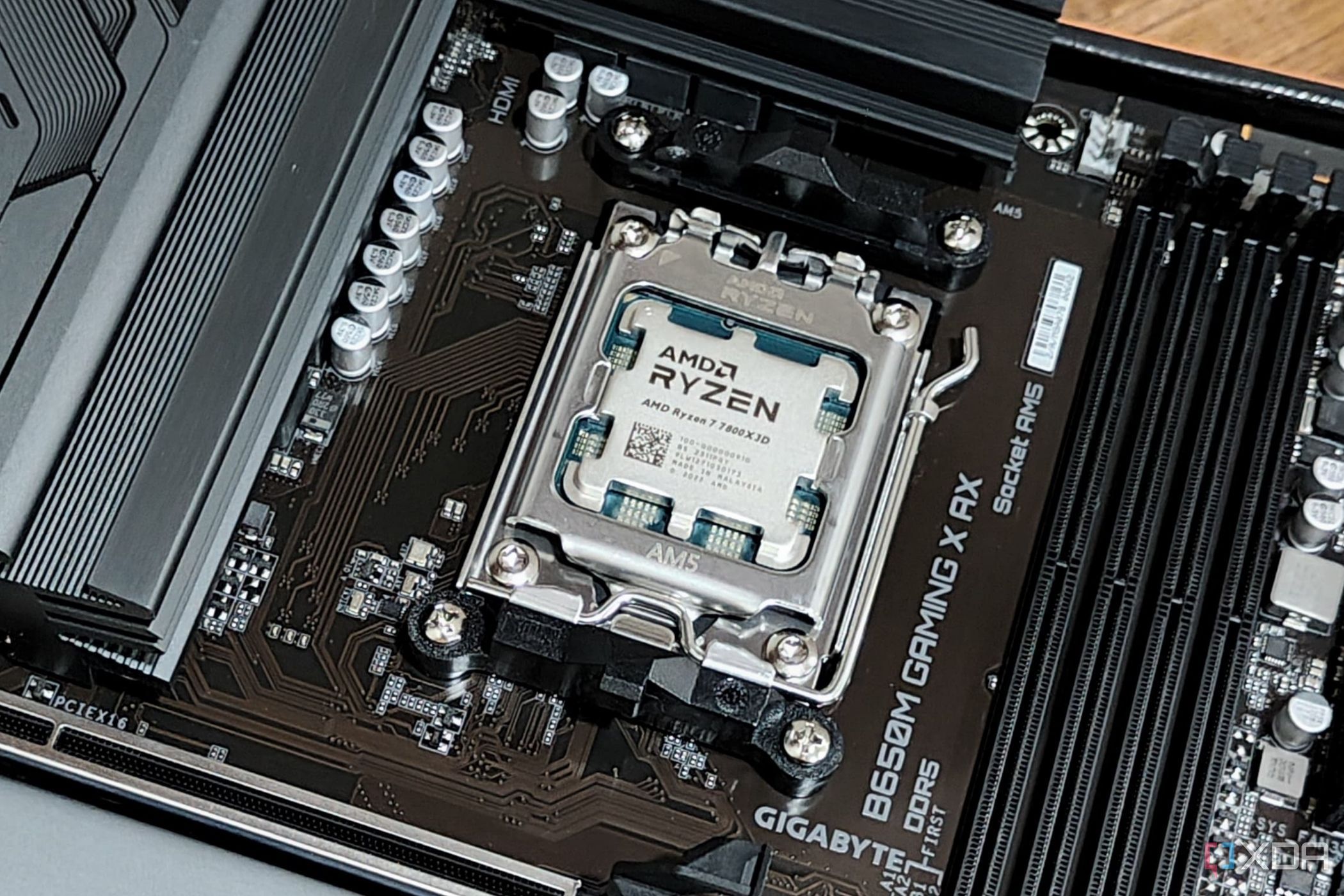Top Stories
Urgent: Check Your CPU Now! Motherboards May Cause Damage

URGENT UPDATE: PC users are being warned about potential damage to CPUs caused by motherboard settings that may overvolt processors. New reports reveal that factory-set BIOS configurations could be pushing CPUs beyond safe limits, leading to increased power draw, overheating, and accelerated degradation.
Experts emphasize that even seasoned builders may overlook the risks associated with default settings. Many modern motherboards, including popular models from manufacturers like ASUS, come with pre-configured overclocking profiles that can cause serious issues. These settings, often labeled as MultiCore Enhancement for Intel systems or Precision Boost Overdrive for AMD Ryzen processors, are designed to boost performance. However, they can inadvertently lead to critical overheating and instability.
This issue is particularly alarming as ASUS has recently taken steps to address user concerns, specifically for the Z790, H770, and B760 motherboards. The updated BIOS now includes a 90°C thermal cap to mitigate CPU temperatures. Yet, many users remain unaware of these changes and could still be using outdated settings that risk their CPU’s longevity.
What You Need to Know NOW: It’s crucial for users to check their BIOS settings immediately to ensure their CPUs are not running under unsafe conditions.
To verify if your CPU is being overvolted, follow these steps:
1. Restart your PC and hold down the BIOS access key (Del, F2, F10, or Esc) during startup.
2. Enter the BIOS interface and switch to Advanced Mode to access performance options.
3. Look for sections labeled AI Tweaker, Overclocking, or CPU Frequency.
4. Check if performance-boosting options like MultiCore Enhancement or Precision Boost Overdrive are enabled.
If these settings are active, it’s advisable to disable them to prevent potential damage. Saving these changes and rebooting will allow your system to operate under safer conditions.
Why This Matters: The implications of these settings are significant. Users may unknowingly subject their CPUs to excessive voltage and heat, which not only affects performance but can drastically shorten the lifespan of the component. Many have reported issues with CPU instability, which often leads to confusion and misdiagnosis of cooling problems.
With the increasing complexity of modern CPUs and motherboards, taking a proactive approach to BIOS settings is essential for maintaining system health. The potential for thermal damage is real, and users must take immediate action to safeguard their investments.
As the tech community continues to discuss these developments, it’s clear that knowledge of BIOS configurations is critical for all PC users. Don’t wait for warning signs—check your settings NOW to ensure your CPU isn’t at risk.
Stay tuned for further updates on this urgent matter as more users become aware of the risks associated with their motherboard settings. Share this information with fellow PC builders and help spread the word about this crucial issue!
-

 Science1 week ago
Science1 week agoResearchers Challenge 200-Year-Old Physics Principle with Atomic Engines
-

 Politics1 week ago
Politics1 week agoNHP Foundation Secures Land for 158 Affordable Apartments in Denver
-

 Health1 week ago
Health1 week agoNeuroscientist Advocates for Flag Football Until Age 14
-

 Lifestyle1 week ago
Lifestyle1 week agoLongtime Friends Face Heartbreak After Loss and Isolation
-

 Health1 week ago
Health1 week agoFDA Launches Fast-Track Review for Nine Innovative Therapies
-

 Top Stories1 week ago
Top Stories1 week agoUnforgettable Moments: The Best Victoria’s Secret Performances
-

 Politics1 week ago
Politics1 week agoIsraeli Air Strikes in Lebanon Kill One, Wound Seven Amid Tensions
-

 World1 week ago
World1 week agoTroops to Enjoy Buffalo Chicken, Thai Curry in 2026 MREs
-

 Business1 week ago
Business1 week agoMaine Housing Inventory Surges to Post-Pandemic High
-

 World1 week ago
World1 week agoGlobal Military Spending: Air Forces Ranked by Budget and Capability
-

 Politics1 week ago
Politics1 week agoMassachusetts Lawmakers Resist Audit After Voter Mandate
-

 Business1 week ago
Business1 week agoSpirit Airlines Cuts Workforce with Furloughs for 365 Pilots









